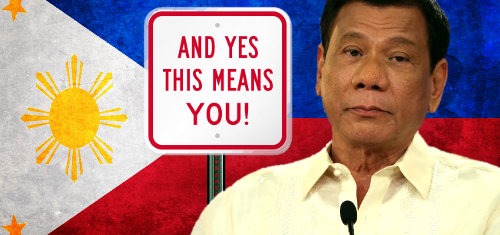 The Philippines’ new president continues to confound with comments regarding his vow to ‘stop online gambling’ in the country.
The Philippines’ new president continues to confound with comments regarding his vow to ‘stop online gambling’ in the country.
On June 30, newly sworn-in President Rodrigo Duterte made the surprise announcement that “online gambling must stop” because too many of his countrymen were gambling instead of working for a living.
But Duterte’s lack of specifics left even the state-run Philippine Amusement and Gaming Corp (PAGCOR) unsure as to what ‘online’ gambling activities the president was out to close.
The Philippines is home to most Asian-facing international online gambling operators, who hold licenses issued by the First Cagayan Leisure and Resort Corp under the Cagayan Economic Zone Authority (CEZA). By law, these operators are prohibited from accepting bets from Philippine citizens, a fact that seemed to exempt them from Duterte’s plan to save locals from themselves.
As a result, the spotlight turned to the gaming terminals in PAGCOR-licensed eGames cafés, which are accessible to local residents. The terminals are provided by companies like Leisure & Resorts World Corp, DFNN, Asian Logic’s MegaSportsWorld division and PhilWeb. The fact that PAGCOR subsequently saw fit to renew PhilWeb’s gaming license for just a single month appeared to confirm this suspicion.
YOU WERE SAYING?
However, on Sunday Duterte offered more specifics in a speech at a dinner for San Beda College of Law alumni. PhilStar quoted Duterte justifying his anti-online campaign thusly: “There is no way of knowing how to collect taxes on gambling bets outside the Philippines because it operates online. So this has to stop.” This “bets outside the Philippines” reference appears to cast a much wider net than locally accessible eGames terminals.
Other comments made to the same group show that Duterte also has land-based gambling operators in his sights. Political news site Politiko quoted Duterte saying he was delaying mounting a concerted anti-gambling effort until law enforcement had sufficiently dealt a blow to the country’s drug lords, but Duterte claimed this delay didn’t mean “that I like jueteng.”
Jueteng is an illegal numbers game that is deeply embedded in local culture, particularly in rural areas devoid of other gambling options. Duterte’s election campaign made a promise to eliminate so-called jueteng ‘lords’ as well as those offering other illegal games, including Last Two, Masiao and Swertres.
GAMBLING WITH THE ECONOMY
Duterte is likely the only person who truly knows the full scope of his anti-gambling campaign, but he’d be wise to think of the likely collateral damage from targeting CEZA-licensed operators. Unlike jueteng lords, international online gambling sites have brought thousands of good-paying white-collar jobs to the Philippines, jobs that will evaporate if operators are forced to find another Asian base of operation.
While CEZA licensees are prohibited from accepting Philippine customers, online gambling sites licensed in other jurisdictions aren’t subject to such restrictions. Some of these non-CEZA sites have nonetheless based their customer service hubs in Manila to take advantage of its vast business process outsourcing workforce.
Without naming names, the past couple weeks has seen a few non-CEZA sites abruptly stop accepting action from Philippine gamblers, who were told the change was “due to the laws in your country.” Clearly, these sites see the value in maintaining their current customer service operations and don’t want to risk rocking the boat. Let’s hope the new Philippine government feels likewise.